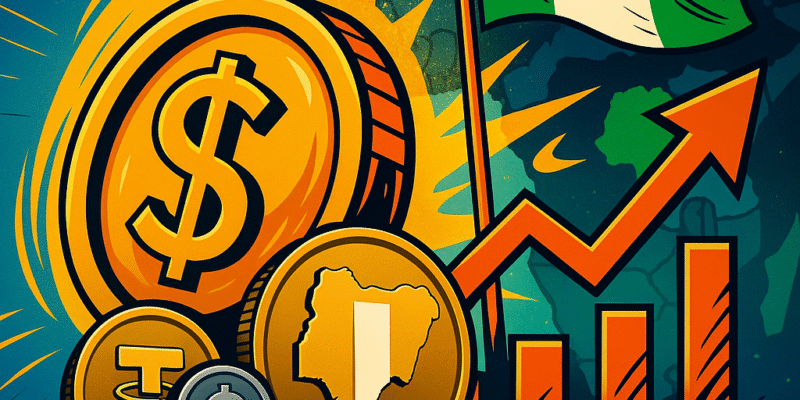Nigeria is now firmly in the spotlight of digital asset innovation. Recent data show that Nigeria stablecoin adoption reached about $22 billion between July 2023 and June 2024, making the country the largest market for stablecoins in sub-Saharan Africa. In the same period, these tokens accounted for roughly 43 % of the region’s crypto transaction volume.
The scale of activity reveals that many Nigerians are using stablecoins not just for trading, but for remittances, savings and business payments. For millions, these tokens offer a way to minimise the impact of inflation and currency depreciation. In Nigeria’s case, the combination of a large youth population, smart-phone adoption and limited access to traditional banking has created fertile ground for digital assets.
As the numbers grow, so does the pressure on regulation. Nigerian authorities have taken note: the Central Bank of Nigeria (CBN) and the Securities & Exchange Commission (SEC) are exploring frameworks that could govern stablecoin issuance, conversion and oversight. The working group announced by CBN Governor Olayemi Cardoso aims to design rules that support innovation while safeguarding monetary stability.
The evolving environment points to a critical juncture. On one hand, the widespread use of stablecoins highlights systemic gaps in the financial system. On the other, the absence of formal rules raises concerns for issuers, users and regulators alike. Without clear oversight, stablecoins risk being used in ways that undermine capital controls, transparency or consumer protection.
Some industry stakeholders believe that Nigeria has a chance to lead in building a regulated stablecoin ecosystem, one that combines the agility of fintech with the trust of oversight. Achieving that will require partnerships between banks, fintechs and regulators. It will also mean tying into domestic payments infrastructure so that stablecoins move from peer-to-peer transfers into everyday commerce.
Challenges remain. Many Nigerians still rely on dollar-pegged stablecoins offshore due to familiar brands and stronger liquidity. On- and off-ramps that work seamlessly in naira are still emerging. Moreover, public education and infrastructure gaps continue to hinder wider adoption.
Nevertheless, the momentum behind Nigeria stablecoin adoption is no longer speculative. With remittances, fintech activity and digital commerce all leveraging these tokens, Nigeria is soaring ahead of its African peers. The coming regulatory framework could unlock further growth or it could determine how stablecoins integrate into the mainstream financial system.
In that sense, the takeaway is clear: Nigeria is not waiting for the rest of the world to lead. It is setting the pace for stablecoin adoption in Africa and shaping how digital money works in practice, not just in theory.

Comments